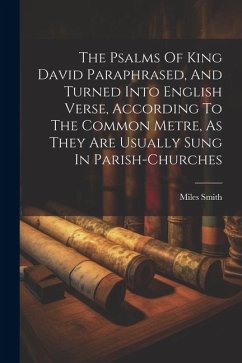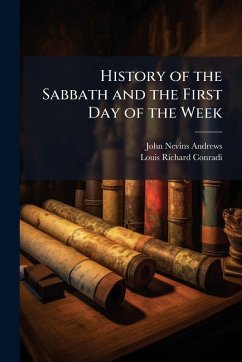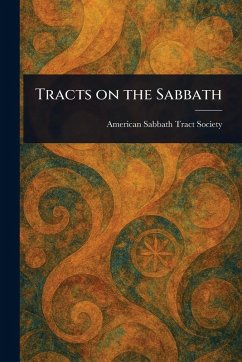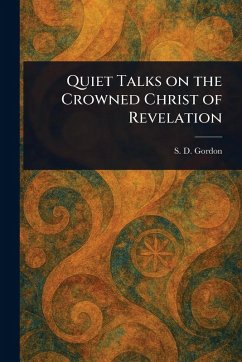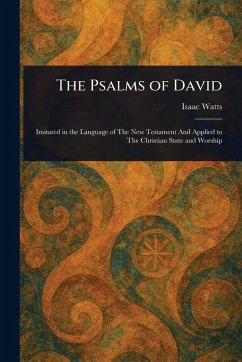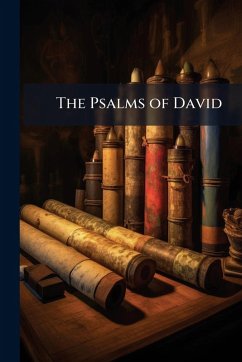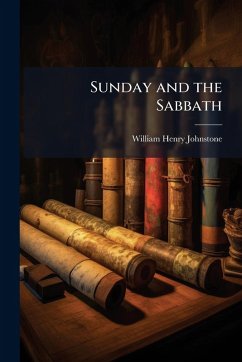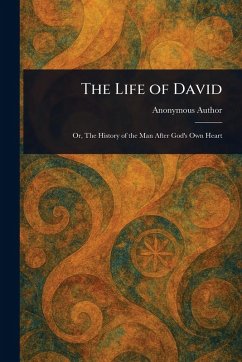
Sabbath Talks With Little Children, on the Psalms of David
Versandkostenfrei!
Versandfertig in über 4 Wochen
18,99 €
inkl. MwSt.

PAYBACK Punkte
9 °P sammeln!
"Sabbath Talks With Little Children, on the Psalms of David" by S. G. Ashton, offers a glimpse into 19th-century religious instruction for children. This work presents accessible discussions of the Psalms, tailored for young minds, and reflects the era's emphasis on moral and spiritual development through biblical teachings. The book provides insight into the methods used to engage children with religious texts during that period, highlighting the importance of the Psalms within a Christian educational context. This work has been selected by scholars as being culturally important, and is part ...
"Sabbath Talks With Little Children, on the Psalms of David" by S. G. Ashton, offers a glimpse into 19th-century religious instruction for children. This work presents accessible discussions of the Psalms, tailored for young minds, and reflects the era's emphasis on moral and spiritual development through biblical teachings. The book provides insight into the methods used to engage children with religious texts during that period, highlighting the importance of the Psalms within a Christian educational context. This work has been selected by scholars as being culturally important, and is part of the knowledge base of civilization as we know it. This work was reproduced from the original artifact, and remains as true to the original work as possible. Therefore, you will see the original copyright references, library stamps (as most of these works have been housed in our most important libraries around the world), and other notations in the work. This work is in the public domain in the United States of America, and possibly other nations. Within the United States, you may freely copy and distribute this work, as no entity (individual or corporate) has a copyright on the body of the work. As a reproduction of a historical artifact, this work may contain missing or blurred pages, poor pictures, errant marks, etc. Scholars believe, and we concur, that this work is important enough to be preserved, reproduced, and made generally available to the public. We appreciate your support of the preservation process, and thank you for being an important part of keeping this knowledge alive and relevant.



